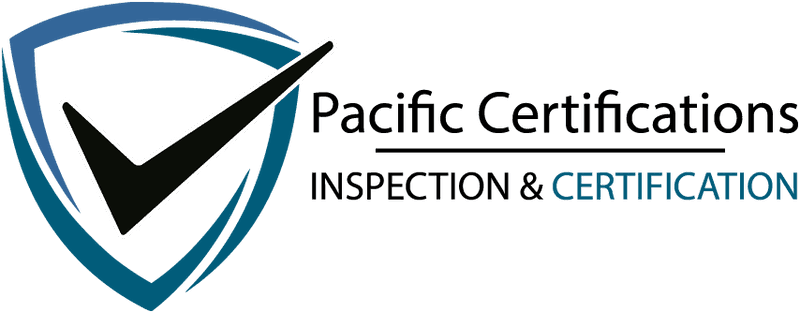ISO Certifications for Mortgages Industry, Requirements and Benefits

Introduction
ISO certifications serve as a mark of quality, helping Mortgage businesses streamline operations, improve customer satisfaction, and ensure regulatory compliance.
In a field where accuracy and reliability are paramount, these certifications provide a structured approach to managing processes, reducing errors, and mitigating risks. As the mortgage industry continues to evolve with new technologies and regulations, maintaining ISO certifications is becoming increasingly vital.
Key ISO Standards Applicable to Mortgage Industry
ISO 9001: Quality Management Systems
ISO 9001 is the most widely recognized quality management standard. For mortgage firms, this standard ensures that processes are in place to deliver consistent, high-quality services.
ISO 27001: Information Security Management
In an industry that handles sensitive financial data, protecting information is crucial. ISO 27001 provides a comprehensive framework for managing and securing sensitive information, reducing the risk of data breaches.
ISO 20000: IT Service Management
Mortgage industry rely heavily on IT systems to manage customer information, process applications, and ensure smooth transactions. ISO 20000 is the international standard for IT service management, ensuring that IT services are aligned with the business needs and are delivered effectively.
ISO 31000 provides guidelines for identifying, assessing, and managing risks in a systematic way. This standard helps mortgage companies prepare for potential financial, operational, and reputational risks, ensuring that they can operate securely in an unpredictable market.
ISO 22301: Business Continuity Management
ISO 22301 helps organizations develop and implement business continuity plans to minimize disruption. Achieving this certification demonstrates a mortgage company’s preparedness and resilience in the face of challenges.
Click here to find out more applicable standards to your industry
How Pacific Certifications Supports Mortgage Industry?
As a reputable certification body, Pacific Certifications specializes in conducting thorough audits and providing ISO certifications to mortgage companies. Our expertise ensures that your organization meets the stringent requirements of the applicable ISO standards.
While we do not offer consultancy services such as training, internal audits, or documentation preparation, we are dedicated to providing an unbiased and rigorous certification process.
Audit Processes
At Pacific Certifications, we understand that every mortgage company is unique. We tailor our audit processes to fit the specific needs and operations of your business. By focusing on the key areas relevant to your chosen ISO standard, we help you achieve certification efficiently and effectively.
Maintaining Compliance in a Dynamic Market
We offer regular surveillance audits to ensure that your company remains compliant with ISO standards over time. Our ongoing support helps you navigate the complexities of the industry while maintaining the highest standards of quality and security.
Global Recognition and Credibility
Pacific Certifications is recognized globally for its commitment to quality and integrity. Achieving ISO certification through us helps you meet regulatory requirements and also enhances your reputation in the international market.
Recently, the mortgage industry is witnessing significant changes driven by digital transformation, regulatory updates, and heightened customer expectations.
Recent market research highlights that companies with ISO certifications are better positioned to adapt to these changes, leveraging standardized processes to improve efficiency and customer satisfaction. With increasing scrutiny on data protection and risk management, ISO certifications are becoming a critical differentiator in the marketplace.
Requirements and Benefits of ISO Certifications for Mortgage Industry
Mortgage firms operate in a highly regulated environment where customer trust, data security, and operational efficiency are critical. Implementing ISO certifications like ISO 9001, ISO 27001, ISO 22301, and ISO 20000 can significantly enhance these aspects of their operations. Below are the requirements and benefits of each relevant ISO standard for mortgage businesses.
ISO 9001: Quality Management System Requirements:
Leadership Commitment: Top management must demonstrate leadership and commitment to the quality management system (QMS).
Customer Focus: Processes should be designed to meet customer requirements consistently, enhancing satisfaction.
Risk Management: Identify, assess, and manage risks that can impact service quality.
Process Approach: Implement a process-driven approach, ensuring that every stage of the mortgage service delivery aligns with quality objectives.
Continuous Improvement: Establish mechanisms for continual improvement of processes and services.
Benefits:
By meeting customer expectations consistently, mortgage companies can improve client trust and loyalty.
Streamlined processes reduce errors and rework, leading to cost savings.
Certification signals to customers and stakeholders that the company is committed to quality.
ISO 9001 can help ensure that the company meets legal and regulatory requirements.
ISO 27001: Information Security Management System
Requirements:
Risk Assessment: Conduct regular risk assessments to identify potential threats to information security.
Information Security Policy: Develop and maintain a comprehensive security policy that addresses data protection.
Access Control: Implement controls to ensure that only authorized personnel have access to sensitive information.
Incident Management: Establish procedures for managing security breaches and other incidents.
Continuous Monitoring and Improvement: Continuously monitor security controls and update them as needed.
Benefits:
Ensures the confidentiality, integrity, and availability of customer and company data.
Helps in complying with data protection regulations such as GDPR, CCPA, etc.
By mitigating risks, the company can avoid costly data breaches and the associated reputational damage.
Demonstrates to clients that their personal and financial information is secure, fostering trust.
ISO 22301: Business Continuity Management System
Requirements:
Business Impact Analysis: Identify critical business functions and assess the impact of disruptions.
Risk Assessment: Evaluate risks that could lead to disruptions in mortgage services.
Business Continuity Plans: Develop, implement, and test continuity plans to ensure quick recovery from disruptions.
Resource Management: Ensure that resources (human, technical, financial) are available to support continuity plans.
Continuous Improvement: Regularly review and improve business continuity strategies.
Benefits:
Ensures that the company can continue to operate during and after a disruption, protecting revenues and customer relationships.
Minimizes the impact of disruptions on business operations, reducing financial losses.
Demonstrates a commitment to maintaining operations in line with regulatory requirements.
Reassures clients and stakeholders that the company is prepared for unexpected events.
ISO 20000: IT Service Management System
Requirements:
Service Management Policy: Establish a service management policy aligned with business objectives.
Service Level Agreements (SLAs): Define and manage SLAs to ensure that IT services meet the needs of the business and its customers.
Incident and Problem Management: Implement processes to manage and resolve IT incidents and problems effectively.
Change Management: Control changes to IT services to minimize disruption and ensure service quality.
Continuous Improvement: Monitor, measure, and improve IT service management processes.
Benefits:
Ensures that IT services are aligned with business needs, enhancing efficiency and customer satisfaction.
Streamlined IT processes reduce waste and optimize resource use.
Consistent IT service delivery reduces downtime and supports business continuity.
Reliable and high-quality IT services improve the overall customer experience.
For mortgage firms, ISO certifications provide a structured approach to improving quality, security, business continuity, and IT service management. These certifications enhance operational efficiency and customer satisfaction but also ensure compliance with regulatory requirements and build trust with clients and stakeholders.
Pacific Certifications is accredited by ABIS, in case you need support with ISO certification for your Mortgage business, please contact us at [email protected] or +91-8595603096.
FAQs: ISO Certifications for Mortgages
What are ISO certifications in the mortgage industry?
ISO certifications in the mortgage industry are standards that help mortgage businesses ensure high-quality services, secure information, manage risks, and maintain regulatory compliance. These certifications provide a structured framework for continuous improvement and customer satisfaction.
Which ISO standards are most relevant for mortgage industry?
The most relevant ISO standards for mortgage industry include ISO 9001 (Quality Management), ISO 27001 (Information Security), ISO 31000 (Risk Management), ISO 20000 (IT Service Management), and ISO 22301 (Business Continuity Management).
How does ISO 9001 benefit a mortgage company?
ISO 9001 helps mortgage firms improve their quality management processes, ensuring consistent service delivery, customer satisfaction, and compliance with regulatory requirements. It enhances the company’s credibility and operational efficiency.
Why is ISO 27001 important for mortgage companies?
ISO 27001 is crucial for mortgage firms because it provides a comprehensive framework for securing sensitive financial and personal data. This standard helps prevent data breaches, ensuring customer trust and compliance with data protection regulations.
What are the basic requirements to achieve ISO certification for a mortgage company?
To achieve ISO certification, a mortgage company must have documented processes, management commitment, employee training, risk management practices, and undergo regular internal audits to ensure compliance with the applicable ISO standard.
How does ISO certification give a mortgage company a competitive advantage?
ISO certification enhances a mortgage company’s reputation by demonstrating its commitment to quality, security, and compliance. This can attract more customers, improve customer loyalty, and differentiate the company from competitors in the market.
Read More at: Blogs by Pacific Certifications

